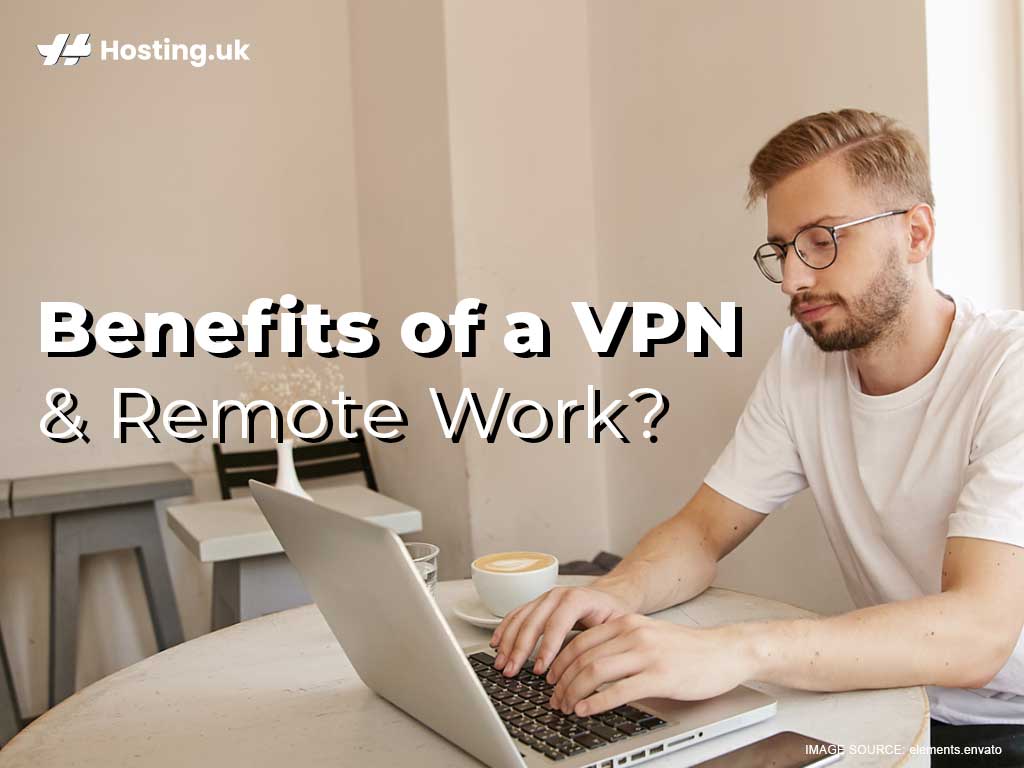With increasing numbers of companies announcing plans to allow more workers to continue working from home for longer, remote working seems like the new norm. That may be good news, not only for you but for persons bent on stealing sensitive information, whether company secrets or personal details. Companies, therefore, need to protect themselves and remote workers if they are serious about remote working.
One way to do that is to use virtual private networks (VPNs) and create online protocols for remote workers to follow when interacting with company resources. When used with cloud backup, VPNs provide companies with an extra layer of security. Also, ensuring that remote workers use one brings peace of mind knowing that proprietary information is safe. How can VPNs do this? Below we highlight five benefits of using a VPN while working remotely.
Table of Contents
What is a VPN?
Virtual Private Networks work by building secure paths or tunnels that it uses to send your online information through. By doing this, only the person sending and receiving the information has access to it.
But there is more: if by some chance (we know hackers can be persistent) your information is intercepted, VPNs encrypt your data before sending it. Data encryption means scrambling the data so that it is not easily understood. The data is automatically decrypted only when it arrives at the intended recipient, so if someone gained access to the data on the way, they would need to decrypt it.
Business VPNs
Remote workers will need access to company servers, usually located at headquarters. This can be a scary process. Without VPNs, companies would have to expose their servers to all Internet users just to allow their remote workers access. With business VPNs, remote workers gain secure access to company servers through the exclusive tunnel VPNs create per client/user. Another layer of comfort can come by companies providing their remote workers with devices for even greater control over security protocols.
This kind of VPN is different from the VPN that you and I use to access the Internet for our personal use.
5 Benefits to Remote Workers and Companies Using VPNs
1. Companies are still in control
Just as there are systems in place to prevent random people from literally walking off the street and accessing your company’s computers. The same goes for remote working too. VPNs allow companies to determine who has access to their network, and which sections of the network.
2. Remote workers benefit from company resources
As mentioned in the first benefit, companies can confidently allow you access to all the software and sections of the network you would normally interact with were you physically present. The reverse is also true. Your IT department can also provide you with specialised support, especially if the computer you are using is company issued.
3. Remote workers are not stuck at home
We all know that ‘work from home’ doesn’t literally mean you work from your house or apartment. But you also know that your favourite coffee shop or bookstore poses electronic risks that could wreak havoc on not just your life but on that of your company as well. VPNs help to eliminate these risks, so we can enjoy the cool breeze of the ocean or the smell of fish and chips as we work from the community square.
4. VPNs ensure security remains at the forefront
There are several ways VPNs can help companies remain secure remotely. This is possible thanks to web filtering and firewall monitoring. When you were going to the office, you may have had to change your log in credentials every 60 or 90 days without repeating passwords, or you’d have to create passwords of a certain make-up. These steps were put in place to maintain the integrity of the company’s security system, so working from home won’t be any different.
5. VPNs facilitate easy cloud backup
Frankly, there shouldn’t be any company who has not yet seen the value of cloud backup and storage. If so much is invested in ensuring workers interact with the company’s servers securely, then equal attention is to be given when this information is being stored. So, just use a VPN to carry out all your remote work. Thankfully, most VPNs facilitate easy cloud backup and storage.
Protecting Data Is more than Infrastructure
Companies can have the best security protocols in place, and be using the latest security technology, and still be vulnerable. Security must involve the human component. Companies must teach staff how to be safe online, as well as in their physical space. For example, ensure no one is peeping over your shoulder when accessing company information and how to identify a dodgy website that could introduce vulnerabilities.
This is of even greater relevance for micro and small businesses. Think your simply hosted website too small to be considered even micro? Start with VPS hosted on cloud servers, and then scale up as the need arises. Security does not have to break the bank.
Summary
Remote working seems here to stay. Protecting company data while granting remote workers access should be a priority. Using a VPN will allow for both, and provide peace of mind at the same time.
